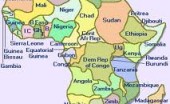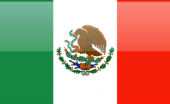Molly Minturn - My family is heartbroken to share that my father died in surgery on Monday, Feb. 10. It…
al-Qaeda
Written by Diana Thebaud Nicholson // September 30, 2011 // Geopolitics, Terrorism // Comments Off on al-Qaeda
See also Osma bin Laden killed
Anwar al-Awlaki killed in Yemen
Officials confirm death in al-Jawf of dual Yemeni-American citizen accused by US of spreading al-Qaeda’s message.
(Al Jazeera) Yemen’s defence ministry has reported that Anwar al-Awlaki, a well-known and controversial imam with alleged ties to al-Qaeda, was killed along with four others.
A government statement released to the media on Friday said Awlaki was hunted down by Yemeni forces, but did not elaborate on the circumstances of his death. He was wanted by both the US and Yemen.
Among those that were killed with him was the co-editor of al-Qaeda’s Inspire magazine, Samir Khan, a US citizen of Pakistani origin. Khan was a specialist in computer programming and was also wanted by the Yemeni government and the US.
5 July 2011
(Al Jazeera) The ‘changing’ face of al-Qaeda
Ayman al-Zawahiri’s ascent to al-Qaeda’s leader could divert attention from a more sinister strategy.
According to terrorism expert Rohan Gunaratna, Ayman al-Zawahiri is even more lethal than Osama bin Laden. ‘Goal-orientated, systematic, secretive and forward thinking’, Zawahiri’s accession as al-Qaeda’s leader marks the return of al-Qaeda with a vengeance.
Certainly, Zawahiri has applied his discipline and notable intellect to the cause of jihad since he was 16 years old. A prolific propagandist, he has penned some of the most influential extremist tracts, including important theological justifications for suicide bombing.
His charisma, however, is more open to doubt – as are his battlefield credentials. The veteran jihadi Abdullah Anas argues that Zawahiri has no credibility. During the jihad against the Soviets in Afghanistan, Zawahiri ‘was just sitting in Peshawar, criticising’.
2010
9 September
US President Obama condemns plans to burn the Koran
(BBC) US President Barack Obama says plans by a small church to burn copies of the Koran on the anniversary of 9/11 are a “recruitment bonanza” for al-Qaeda.
22 July
France, Mauritania in desert strike on al Qaeda
(Reuters) – France and Mauritania said on Friday they carried out a military operation against al Qaeda’s North African wing, believed to be holding a 78-year-old French hostage in the desert Sahel region.
Fanning the Flames of Jihad
On July 11, 2010, al-Malahim Media, the media arm of al Qaeda in the Arabian Peninsula (AQAP), published the first edition of its new English-language online magazine “Inspire”.
In a letter from the editor appearing at the beginning of the magazine, the purpose of Inspire is clearly laid out: “This magazine is geared towards making the Muslim a mujahid.” The editor also clearly states that Inspire is an effort by al-Malahim Media to reach out to, radicalize and train the millions of English-speaking Muslims in the West, Africa, South Asia and Southeast Asia.
Inspire does not represent any sort of major breakthrough in jihadist communication. English-language jihadist material has been available on the Internet since the early 1990s on sites such as Azzam.com, and jihadists have released other magazines directly targeting English-speaking audiences. What is remarkable about Inspire is that it was released by al-Malahim and AQAP.
8 January 2009
Jihadism in 2009: The Trends Continue
Stratfor views what most people refer to as “al Qaeda” as a global jihadist network rather than a monolithic entity. This network consists of three distinct entities. The first is a core vanguard, which we frequently refer to as al Qaeda prime, comprising Osama bin Laden and his trusted associates. The second is composed of al Qaeda franchise groups such as al Qaeda in Iraq, and the third comprises the grassroots jihadist movement inspired by al Qaeda prime and the franchise groups.
As indicated by the title of this forecast, we believe that the trends we have discussed in previous years will continue, and that al Qaeda prime has become marginalized on the physical battlefield to the extent that we have not even mentioned their name in the title. The regional jihadist franchises and grassroots operatives pose a much more significant threat in terms of security concerns, though it is important to note that those concerns will remain tactical and not rise to the level of a strategic threat. In our view, the sort of strategic challenge that al Qaeda prime posed with the 9/11 attacks simply cannot be replicated without a major change in geopolitical alignments — a change we do not anticipate in 2009.
19 December 2007
Al Qaeda in 2008: The Struggle for Relevance
(www.stradtfor.com) There are two battlegrounds in the war against jihadism: the physical and the ideological. Because of its operational security considerations, the al Qaeda core has been marginalized in the physical battle, causing it to take up the mantle of leadership in the ideological battle. As we head into 2008, however, there are signs that the ideological war is not going so well for the jihadists. [more]



